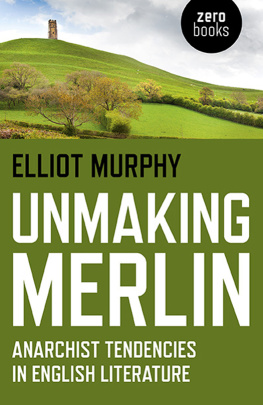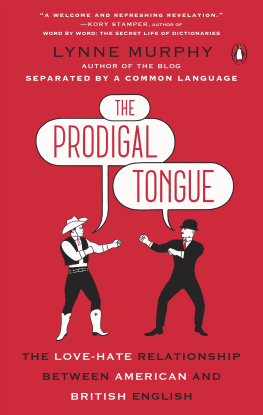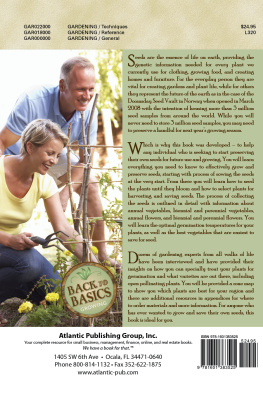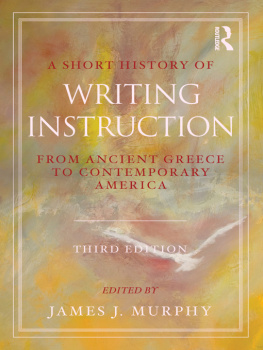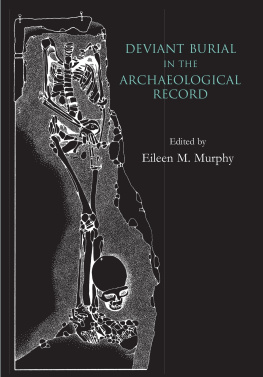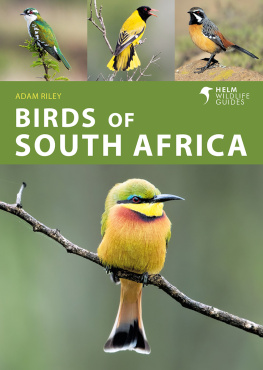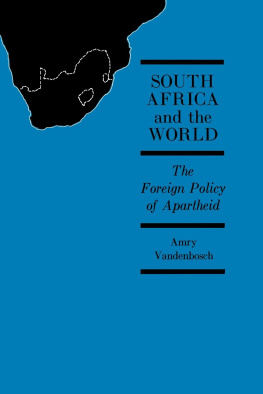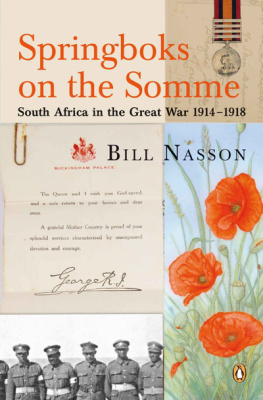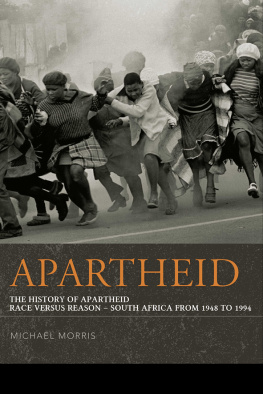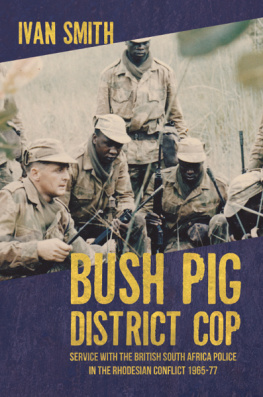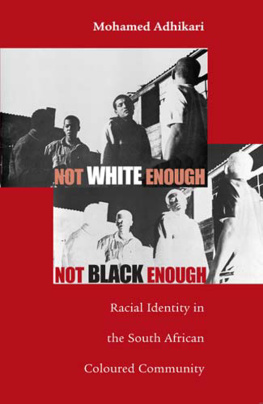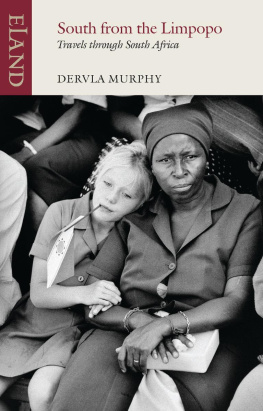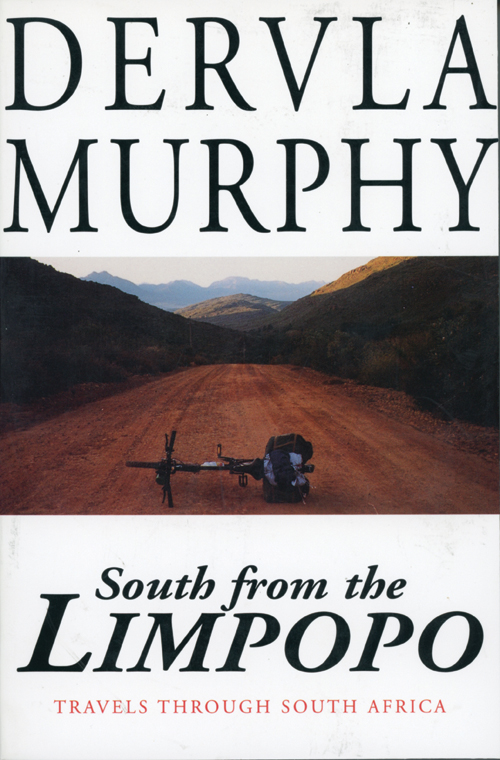Special thanks must go to Margaret Fogarty; without her practical help and unflagging encouragement I might never have finished this book. Her mother Daphne tolerated my erratic arrivals at and departures from their home with limitless patience. And her friend Jennifer Alt became my most valuable South African mentor.
On the Cape Peninsula, Ray and Wally in Retreat and Wendy Woodward and Chris Wildman in Observatory provided me with homes from home. Jane and David Rosenthal would have done likewise but time ran out
Elsewhere, numerous new friends of all colours offered generous hospitality and precious insights into the new South Africa. However, not everyone would want to be directly associated with this book and some names have been changed in the text.
On the last lap, John Murray VII, Hugh Lewin, Justin Cartwright and a Capetonian friend who wishes to remain anonymous gave shrewd editorial advice. And, as always, Diana Murray saw at a glance what was wrong with the first draft and inspired me as only she can to try harder.
Definition of black, white, Coloured, Indian and other groups as used in the text
In 1993 South Africas population was guestimated to be 41 million, of whom 76 per cent were black, 13 per cent white, 8.5 per cent Coloured and 2.5 per cent Indian.
It is politically correct to describe as black all South Africans who are not white. This usage is understandable, in reaction to the Population Registration Act and all that went with it, yet for the sake of clarity I have eschewed it. South Africas Indian citizens are South Africans as the white citizens are South Africans. But they are not blacks. Nor are the Cape Coloureds, to whom I refer as Coloureds. Their ancestry is no more than one-third African, the other components being Asian and European. The Griquas are also mixed, the result of Boer/San or Boer/Khoikhoi interbreeding in centuries past. The copper-skinned San (or Bushmen) and Khoikhoi (or Hottentots) were the original inhabitants of the southern regions of Africa, and the only inhabitants of the Cape and its hinterland when the first Dutch settlers arrived in 1652.
In general, South Africas whites are either Afrikaners (formerly known as Boers) or English-speakers. Afrikaners are descended from the earliest European settlers: Dutch, French Huguenot, German. Most English-speakers are descended from the British who settled in the Cape Colony and Natal in the nineteenth century. However, this category by now includes Jews from Russia and Central Europe, southern Europeans who were encouraged to migrate to increase the white population during the 1950s, and some 150,000 Portuguese refugees from Angola and Mozambique who were welcomed by the apartheid state when their degenerate empire abruptly collapsed in 1974.
I have revived the obsolete term Boer to describe Afrikaner farmers, a dwindling breed for many of whom I developed much to my surprise a great affection. The urbanized Afrikaners are very different from their rural cousins; the use of Boer (which simply means farmer) is my way of emphasizing the difference.
Another difference in need of emphasizing is that between South Africas so-called Communists and all other Communists. The apartheid regime, set up at the start of the Cold War, immediately jumped on the Wests anti-Communist bandwagon. For the next forty-five years many opponents of apartheid, however impeccable their Christian/liberal/capitalist credentials, were defined as Communists and treated as criminals.
Glossary
Acronyms are usually spelled out in full on first mention. All are listed in the Glossary, as are Afrikaans and other local words.
By 1952 I had begun to collect books about South Africa and to realize that apartheid was not in fact a new anti-black weapon forged by the Afrikaners. Since the 1870s British observers including Anthony Trollope, J. A. Froude, Lord Bryce, Joseph Chamberlain, Lord Milner had been warning the Colonial Office about the danger of extending the franchise to natives. In 1901 Lionel Curtis fresh from New College, Oxford, one of Lord Milners infamous kindergarten of youthful colonial officers wrote: It would be a blessed thing if the negro, like the Red Indian, tended to die out before us. Two years later John Buchan, Lord Milners Private Secretary, produced a blueprint for the countrys future native policy and noted that:
Mentally the black man is as crude and naive as a child, with a childs curiosity and ingenuity His instability of character and intellectual childishness make him politically far more impossible than even the lowest class of Europeans.
Lord Milner then appointed a Commission which recommended segregation policies that shocked his more civilized compatriots. When the South Africa Act was passed in 1909 Keir Hardie protested that MPS should not assent to the setting up of the doctrine that because of a mans misfortune in having been born with a coloured skin he is to be barred the possibility of ever rising to a position of trust. But Lord Balfour argued, You cannot give them equal rights without threatening the whole fabric of civilization. The Red Indians are gradually dying out. The Australian Aborigines are even more clearly predestined to early extinction. But with the black races of Africa, for the first time we have the problem of races as vigorous in constitution, as capable of increasing in number, in contact with white civilization. Not only Afrikaners feared the swart gevaar. the black peril.
It is no coincidence that several of the designers of Grand Apartheid studied at German universities during the 1930s. Many English-speakers were at first appalled by the Afrikaners creation of a totalitarian state, yet there is no escaping the fact that apartheid was supported, actively or passively, by the vast majority of South Africas whites. It was also supported by a minority of South Africas blacks who, for personal gain, collaborated in the setting up of the independent homelands.



